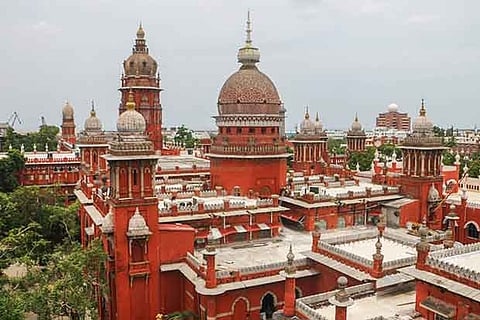

Chennai
Justice R Mahadevan issued the order while hearing a plea by B Kalaiselvi and Mala Rajendran seeking direction to the government to allocate separate land for burial ground for those from Arunthathiyar community in Madur village of Kallakkurichi.
The judge also directed the removal boards put up in cremation grounds by different communities to use the part of land exclusively for their caste and communities, and allow the entire space to be used for everyone without any discrimination.
“The State is directed to construct and maintain common cremation/burial grounds in every village without any distinction whatsoever on the basis of caste and community within the respective religion without in any way impinging upon the right of every citizen to their fundamental right under Article 25 of the Constitution,” the judge said.
The petitioners had contended that they have been using the Odai Poramboke land in the village as a burial ground. But they were unable to use it during the rainy season, as water gushes in from a nearby canal.
Government advocate Stalin Abimanyu said the Revenue Divisional Officer has directed the Tahsildar to identify land for Arunthathiyars’ burial ground. “Tahsildar was asked to allow Arunthathiyars to use that particular land temporarily till a permanent space was identifying,” he added. However, the judge rejected it stating that the court could not allow encroachment on the path of the canal.
The court asked the State to take steps to prevent any instance of social disability to fulfill its Constitutional commitment, and also the International Convention for Elimination of All Forms of Racial Discrimination, and the declaration on race and racial prejudice, to which India is a signatory.
Penal action should be taken in the event of any violation, including imprisonment and fine as per law, Justice Mahadevan said, adding that the aggrieved persons should be afforded legal remedies.
Visit news.dtnext.in to explore our interactive epaper!
Download the DT Next app for more exciting features!
Click here for iOS
Click here for Android